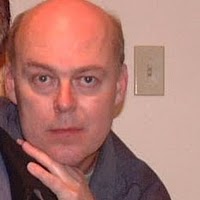Testing the limits of smarminess, Mitt Romney told a maverick in the herd at the Iowa State Fair (birthplace of deep-fried butter on a stick): "Corporations are people my friend."
Surely, some of Mitt's best friends are corporations. But his assertion has as little to do with corporations actually being people as it does with Mitt seeming presidential. His goo-goo condescension is effectively cloaked, apparently; otherwise, people might be more sensitive to his uncanny ability to make babies cry. But of course it doesn't matter now that the SCOTUS gave corporations the keys to elections.
The Federal Reserve
Sorry, the Fed creates rainy days so they can steal property for pennies on the dollar, as they did with farms during the Great Depression. Current head of the Fed, Ben Bernanke--he even admitted the Fed caused the Great Depression. Ben apologized, and promised they would never do it again.....
The Fed is a private corporation insatiably sucking blood from America with debt money. One thing governments like about debt money is how it makes war easy by eliminating the mess of having to directly raise money for war. Overall, it seems hard to imagine any single private entity inflicting anything even close to the damage the Fed has inflicted, and inflicts, on us 99 percent, our country, and countries with valuable resources, especially oil.
James Madison, fourth president of the United States, called the private international banking cartel of which the Fed is a part, the "Money Changers". And Madison said, "History records that the Money Changers have used every form of abuse, intrigue, deceit and violent means possible to maintain their control over governments by controlling money and its issuance."
Thomas Jefferson said:
"I sincerely believe that banking institutions are more dangerous to our liberties than standing armies. Already they have raised up a money aristocracy that has set the government at defiance. The issuing power should be taken from the banks and restored to the people to whom it properly belongs."
Abraham Lincoln:
"The money powers prey upon the nation in times of peace and conspire against it in times of adversity. It is more despotic than a monarch, more insolent than autocracy, and more selfish than a bureaucracy. It denounces, as public enemies, all who question its methods or throw light upon its crimes. I have two great enemies, the Southern Army in front of me and the bankers in the rear. Of the two, the one at the rear is my greatest foe."
Some of America's most profound history orbits the power of the international banking cartel (some might say Rothschild Bankula) seizing control of the nation's issuance of money. Article I, Section 8 of the Constitution states that Congress shall have the power to coin money and regulate the value thereof. Seems plenty clear.
We have had three private central banks. The first was born in 1791 as the Bank of the United States, 70% owned by foreigners. Primary opposition focused on the fact that it was unconstitutional, creation of such a bank with a monopoly on issuing money. This first central bank had a 20-year charter; only the vote of Vice President George Clinton in 1811 saved us from renewal of that charter.
Britain (home of the City of London, throne of Bankula) attacked us soon thereafter. Whether or not the War of 1812 was a direct result of non-renewal of the first central bank's charter, that's a matter of history, which Napoleon called, "A set of lies agreed upon." History keeps proving him right.
Anyway, President Monroe signed into law the charter for the Second Bank of the Untied States on April 10, 1816. This bloodletting also came with a twenty-year charter--at the end of which, President Jackson was able to disengage Bankula from America's throat. Later, when asked what his greatest accomplishment had been during his two terms as President, Andrew Jackson replied "I killed the Bank."
(Note: You can view every article as one long page if you sign up as an Advocate Member, or higher).





